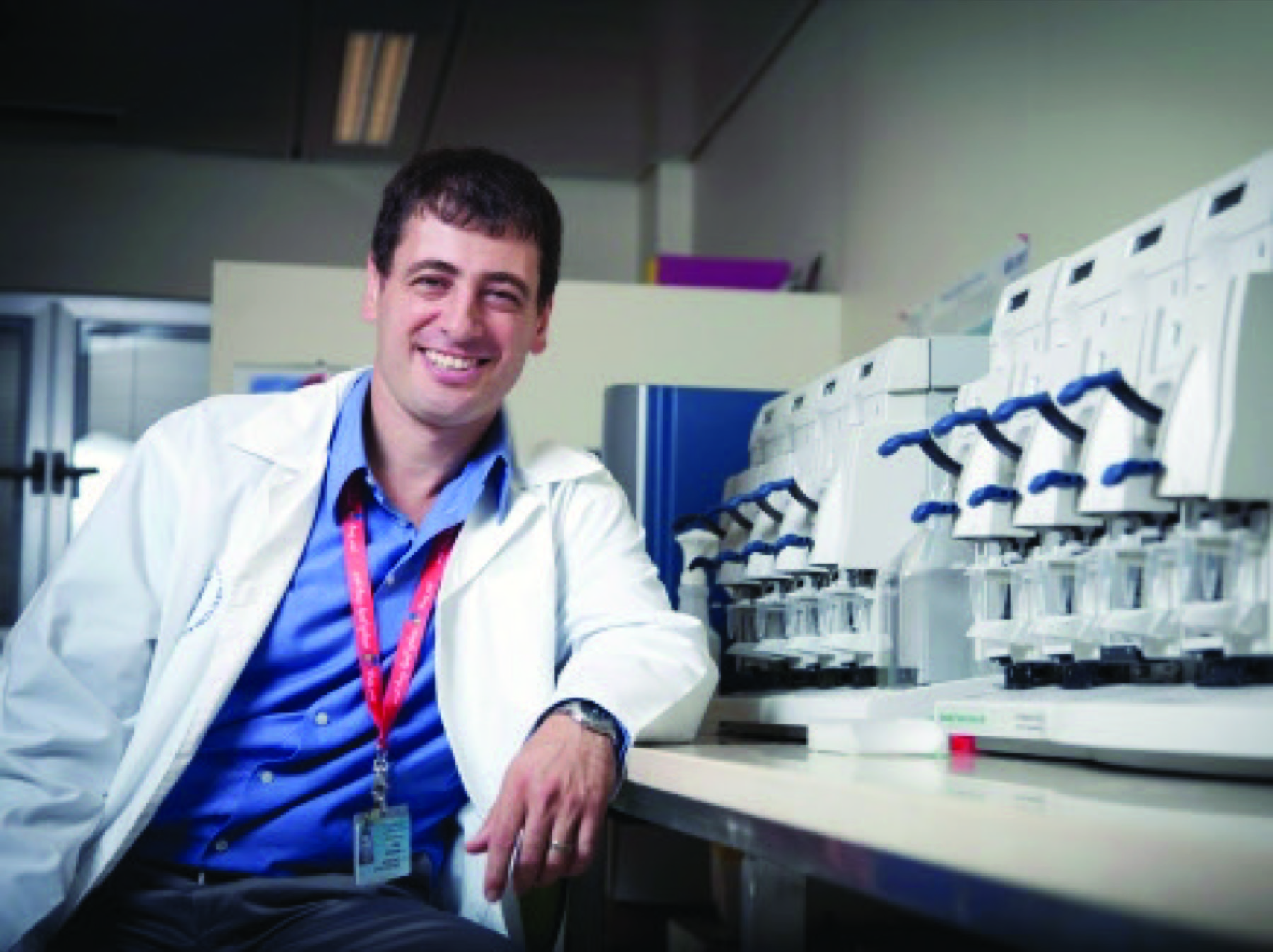
At any given time, around 30 percent of the 355 beds at the Edmond and Lily Safra Children’s Hospital at Sheba Medical Center are occupied by children from enemy states, but the hospital’s deputy director, Itai Pessach, wouldn’t have it any other way.
Last month, Pessach received a call — one of “millions,” he said — asking if his department could take a 10-year-old Syrian girl who was severely injured when the roof of her home caved in during a massive offensive by Syrian President Bashar Assad’s regime in the southern Syrian region of Daraa.
As is almost always the case, his department had a surplus of patients and a shortage of staff, but that didn’t stop Pessach. “If someone needs care, it doesn’t matter where they are in the world, we will make it happen,” he said. Off-duty doctors and nurses were called at home to see if they could lend a hand and, without exception, they volunteered to come in.
Picture the scene, Pessach said: A poor woman sits on a chair with her baby on her lap when an explosion causes the building to collapse. Tragically, her baby dies in her arms. Her husband and son, badly wounded, are whisked away to a Syrian hospital. Her surviving daughter is in critical condition. She is taken to the border, where she is carried across it by Israel Defense Forces soldiers.
Imagine, she’s practically attacked by enemy soldiers, he continued. A helicopter transports her and her daughter to a city — the first she’s ever been to — and to the most advanced hospital in the Middle East. And all the while she’s still wearing her pajamas. Her life — and everything she knows to be true — has changed forever. The enemy has saved her daughter’s life.
“Caring for these children, it opens a small window of hope and plants the seeds to build something that is not hatred and ignorance but hope and collaboration,” Pessach said.
“If someone needs care, it doesn’t matter where they are in the world, we will make it happen.”
Pessach has always been inexorably linked to the Syrian border. On the first day of the 1973 Yom Kippur war, his father was killed in the Golan Heights — which then belonged to Syria. Pessach wasn’t even 2 years old, but, he said, the associations he grew up with about Syria were always bitter, full of hate and fighting and war.
Having the opportunity to change that story has been a healing process for him. “I feel like I’m closing that circle that was opened when my dad died,” he said.
Pessach has many tales in which humanity trumps politics. In one, two Palestinian siblings under the age of 10 sustained life-threatening burns during an explosion in their Nablus home. Pessach inferred that the siblings may have had a family member involved in building homemade explosive devices. The children were hospitalized at Sheba for close to a year.
Pessach also described operating on a Gazan child in the 2014 war, while the sirens were blaring, warning Israelis to run for shelter as a missile headed to the center of the country.
The complexity of these stories, their humanity, intertwined with an unspeakably harsh geopolitical reality, demonstrates why over the years, Pessach has chosen to forego far more lucrative career opportunities overseas in favor of staying at Sheba.
“My life is the most amazing. I’m so fortunate,” he said, adding, “Saving one life is like saving the world. Practically this is what we do, every single day, so you can’t have a better job than that. It starts with physicians and ends with the cleaning personnel and the guard at the gate,” he said. “We’re changing politics. We’re actually doing the thing that will make the world a better place. I really don’t know of a better position to have.”























 More news and opinions than at a Shabbat dinner, right in your inbox.
More news and opinions than at a Shabbat dinner, right in your inbox.